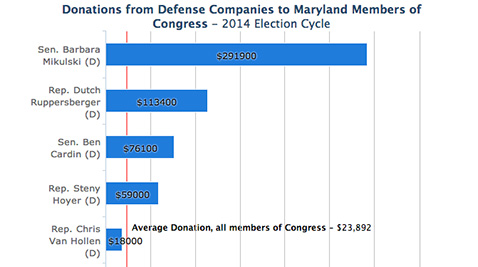WASHINGTON – Campaign finance law prohibits corporations, labor unions and other similar organizations from making direct contributions to candidates or political parties in federal elections. Instead, these groups use PACs to pool members’ donations and contribute them to campaigns and candidates of their choice.
The Federal Election Commission (FEC) classifies a PAC as “any organization which is not a political committee but which directly or indirectly establishes, administers, or financially supports a political committee.”
This language allows organizations affiliated with private companies – including those in the defense sector – to give money to federal candidates and the organizations that finance their campaigns.
A series of Supreme Court rulings have significantly expanded the ways corporations can donate to federal elections.
The Supreme Court ruled in the 2010 case of Citizens United v. Federal Election Commission that independent political expenditures by corporations and labor unions are protected under the First Amendment as free speech.
A subsequent Supreme Court ruling on Speechnow.org v. FEC that same year allowed for the creation of independent expenditure-only committees – also known as Super PACs – capable of raising and spending unlimited sums of money to influence elections, but prohibited from contributing directly to candidates or parties.
While the rulings in Citizens United and Speechnow ignited a firestorm of controversy regarding the campaign finance system, traditional PACs are still subject to per-election limits on campaign spending and per-year limits on contributions from individual members.
The Supreme Court ruling in the case of McCutcheon v. FEC in April further enables individual contributions by removing the previous limit on aggregate contributions – or contributions from one individual to multiple candidates and party committees.
Prior to the 5-4 ruling in the McCutcheon case, aggregate donations given to candidates could not exceed a total of $48,600 – with a limit of $2,600 per individual candidate per election cycle – and those given to PACs and political parties could not exceed $74,600. Together, these limitations prohibited any individual from contributing more than $123,200 in aggregate contributions to candidates, PACs and parties combined.
Now, the Supreme Court has declared the aggregate limit to be unconstitutional, allowing individuals to give the maximum legal contributions to as many candidates and parties as they like. The per-candidate and per-party limits still exist, but the aggregate limit has been struck down.

